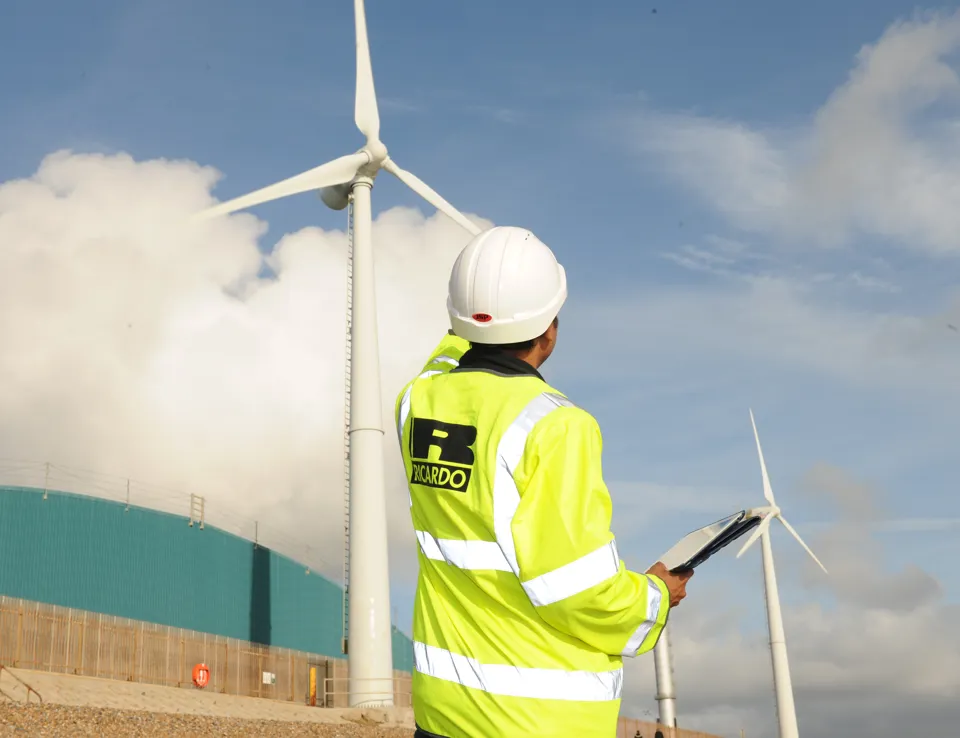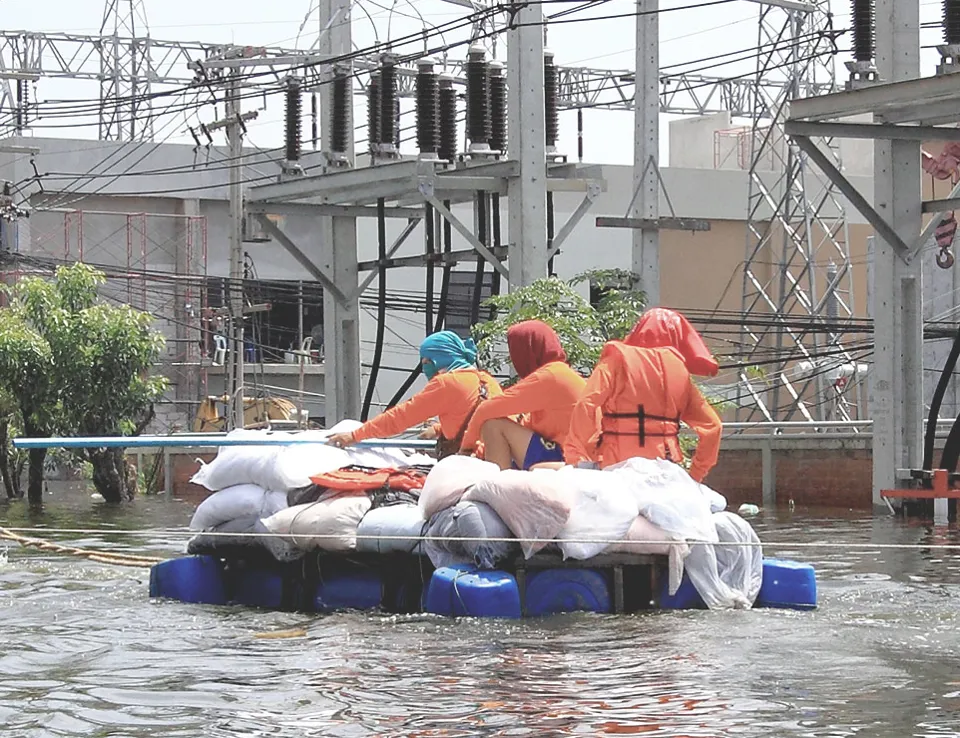
Course correction
12 Jun 2024
Nationally Determined Contributions (NDCs) are fundamental to the international climate agenda
In 2015, Parties to the United Nations Framework Convention on Climate Change (UNFCCC) adopted the Paris Agreement, the historic international agreement detailing the long-term climate goals that countries around the world will work towards.
The Agreement (Article 2) includes three key goals:
- Holding the increase in the global average temperature to well below 2 °C above pre-industrial levels and pursuing efforts to limit the temperature increase to 1.5 °C above pre-industrial levels;
- Increasing the ability to adapt to the adverse impacts of climate change and foster climate resilience and low greenhouse gas emissions development, in a manner that does not threaten food production; and
- Making finance flows consistent with a pathway towards low greenhouse gas emissions and climate-resilient development.
Within the Agreement, Parties are required to prepare their own “Nationally Determined Contributions” (NDCs), setting out national targets for reducing greenhouse gas (GHG) emissions, often accompanied by details of the policies and actions planned by governments.
As well as their reduction plans, the NDCs can also include approaches to adapting to the impacts of climate change, something often of particular importance for developing countries.
Being “Nationally Determined”, the process is based aound recognition of the varying circumstances facing different countries around the world, and ensures developing countries, for example, have some flexibility given their more limited capacities.
Additional considerations for NDCs include how the plans will be financed and resourced; how governments will engage and mobilise stakeholders; and how the proposals will contribute to wider socioeconomic development goals and support a “Just and Equitable Transition” to low-carbon, climate-resilient economies.
The NDCs must be resubmitted every five years, with each submission representing progression in terms of ambition. With the first NDCs submitted in 2015, and updated in 2021 (having had a 12-month extension due to the pandemic), the next updates (coined NDCs 3.0) are due in early 2025.
However, with the current decade considered critical for international climate action - according to the IPCC, emissions need to peak by 2025 to maintain a 1.5oC-aligned emissions trajectory - the forthcoming NDCs have been described as "the most important climate documents produced so far this century” (UNFCCC Executive Secretary Simon Stiell, March 2024).
“We are in a critical decade for climate action, and the NDCs submitted in 2025 will set out how countries around the world intend to “course-correct” towards a low-carbon and climate-resilient future”
Maya Rubin
Consultant, Ricardo Climate Action Planning and Transparency

What is the current state of play?
Through a process known as the “Global Stocktake” the collective progress towards achieving the Paris Agreement is periodically assessed.
However, the first stocktake, which was concluded at COP28 in 2023, found that implementation of the last NDCs has been lacking. Furthermore, the IPCC have reported that NDCs are, as a whole, not ambitious enough to meet the reductions needed.
The “gap” is twofold: one certainly exists between current targets and the ambition needed to meet the long-term temperature goals; but there is also a notable gap between those targets and actual implementation, meaning the Paris goals are unlikely to ever be met.
The first Global Stocktake therefore “encourages Parties to come forward... with ambitious, economy-wide emission reduction targets, covering all greenhouse gases, sectors and categories and aligned with limiting global warming to 1.5 °C, as informed by the latest science, in the light of different national circumstances”.
In terms of climate adaptation, the stocktake called for “urgent, incremental, transformational and country-driven adaptation action based on different national circumstances”.
How will Ricardo’s work on the NDC 3.0 Navigator support the next round of NDCs?
The NDC 3.0 Navigator is an interactive tool designed to support the development of the 2025 submissions and - for developing countries in particular - help nations to develop their NDCs in a way that reflects the highest possible ambition and accelerate the implementation of their plans and policies.
The Climate Action Planning and Transparency team at Ricardo worked with the NDC Partnership and UNFCCC to develop content extending across both technical elements (e.g. target setting, reflecting adaptation, just and equitable transition considerations), and process elements (e.g. unlocking finance, engaging all-of-government and all-of-society, identifying support needs, and ensuring technically sound documents).
The tool will also inspire country teams, their experts and partners, in bringing together knowledge and support in a series of “Routes to Ambitious and Implementable NDCs”, which cover the following themes:
- Aligning to the Paris Agreement Temperature Goal – the actions needed to achieve ambitious goals, and what these mean in different sectors
- Aligning to the Paris Agreement Global Goal on Adaptation – the importance of ensuring resilience and opportunities for adaptation to climate impacts across priority areas
- Delivering a "Just and Equitable Transition” - what it means to ensure the transition is fair, protects jobs and economies, and delivers benefits, and how to plan for this
- Mobilising “all-of-government” and “all-of-society”- the importance of hearing from different stakeholders, including local governments, communities and businesses
- Unlocking finance for implementation – the key opportunities to enhance identification of finance options and how to strengthen access to this
- Addressing technology and support needs for implementation – why identifying technology and capacity needs, and working with stakeholders to support new technologies is key
- Ensuring technically sound and transparent documents – the role of data and transparency as the foundation for the integrity of climate commitments and action
The primary audience for the NDC 3.0 Navigator is governments in developing countries and the organisations and individuals who may support them in developing NDCs 3.0. Such governments often have low capacity to develop their NDCs, whether due to limited resources, or limited in-house climate change expertise. The NDC 3.0 Navigator will support these governments to identify nationally appropriate opportunities to raise ambition in their next NDCs, and signpost them to a host of further guidance on each key topic as well as opportunities to access support.
In this way, the NDC 3.0 Navigator intends to support the development of NDCs 3.0 that will help the world as a whole get back on track to deliver the goals of the landmark 2015 Paris Agreement.
Why choose Ricardo
Ricardo has worked with a large number of countries during previous rounds of NDCs, often providing technical support on elements such as targets, emissions modelling, reflection of activities and responses, stakeholder engagement, etc. Our team includes experts on climate change mitigation, adaptation, finance, stakeholder engagement, just transition, and transparency.
Find out about how we can help your team develop their latest NDC submissions.





 Follow Ricardo plc for regular updates
Follow Ricardo plc for regular updates




